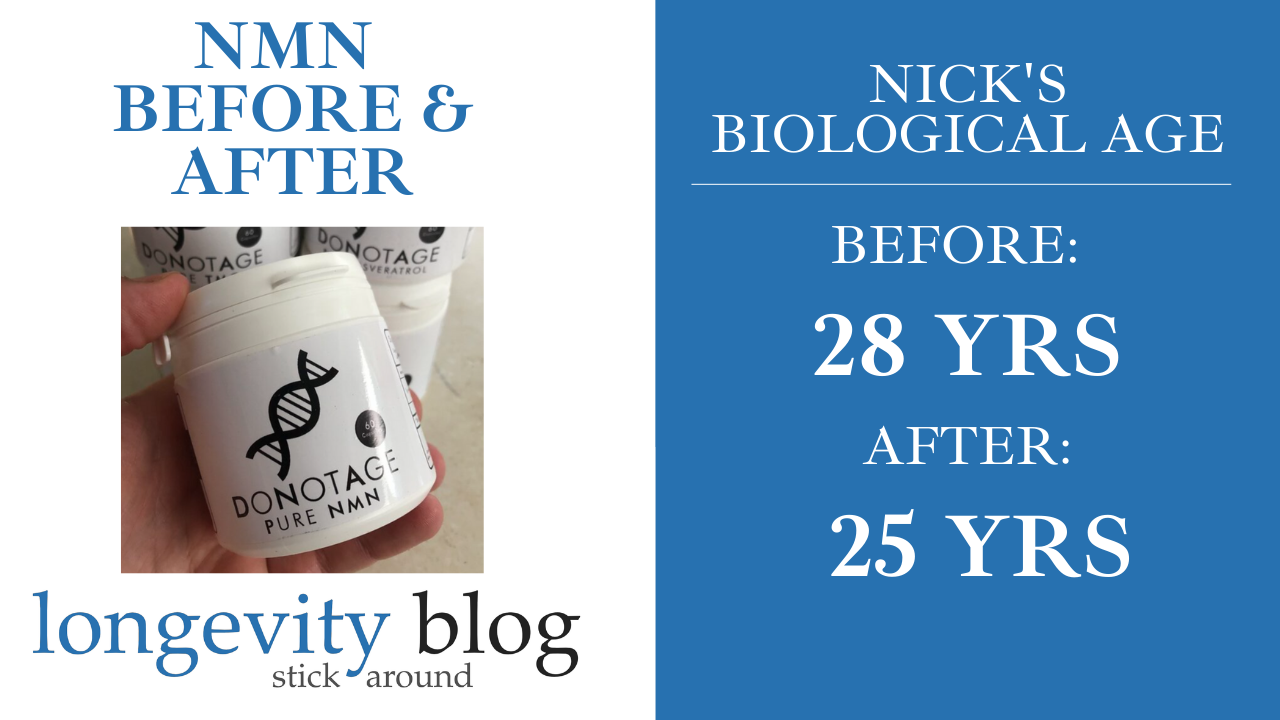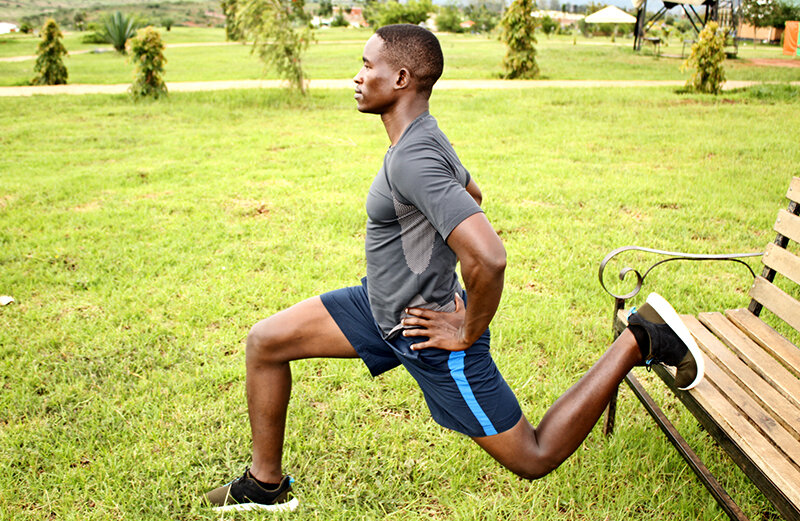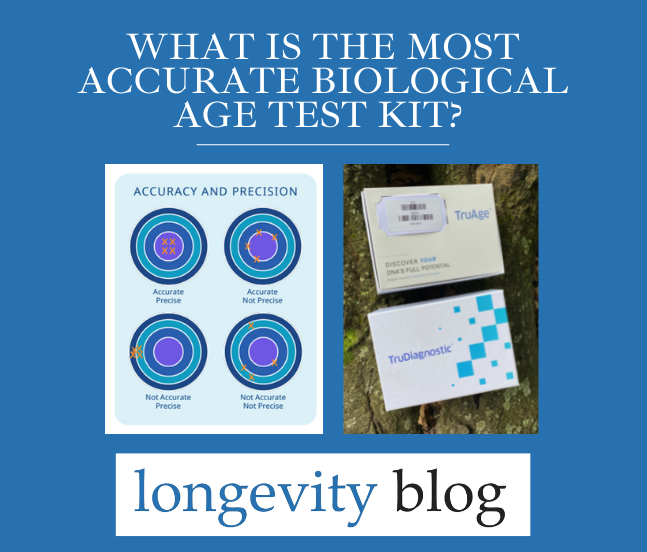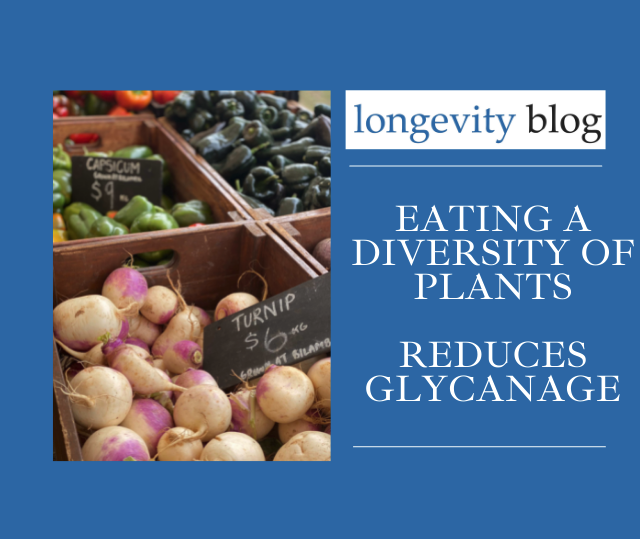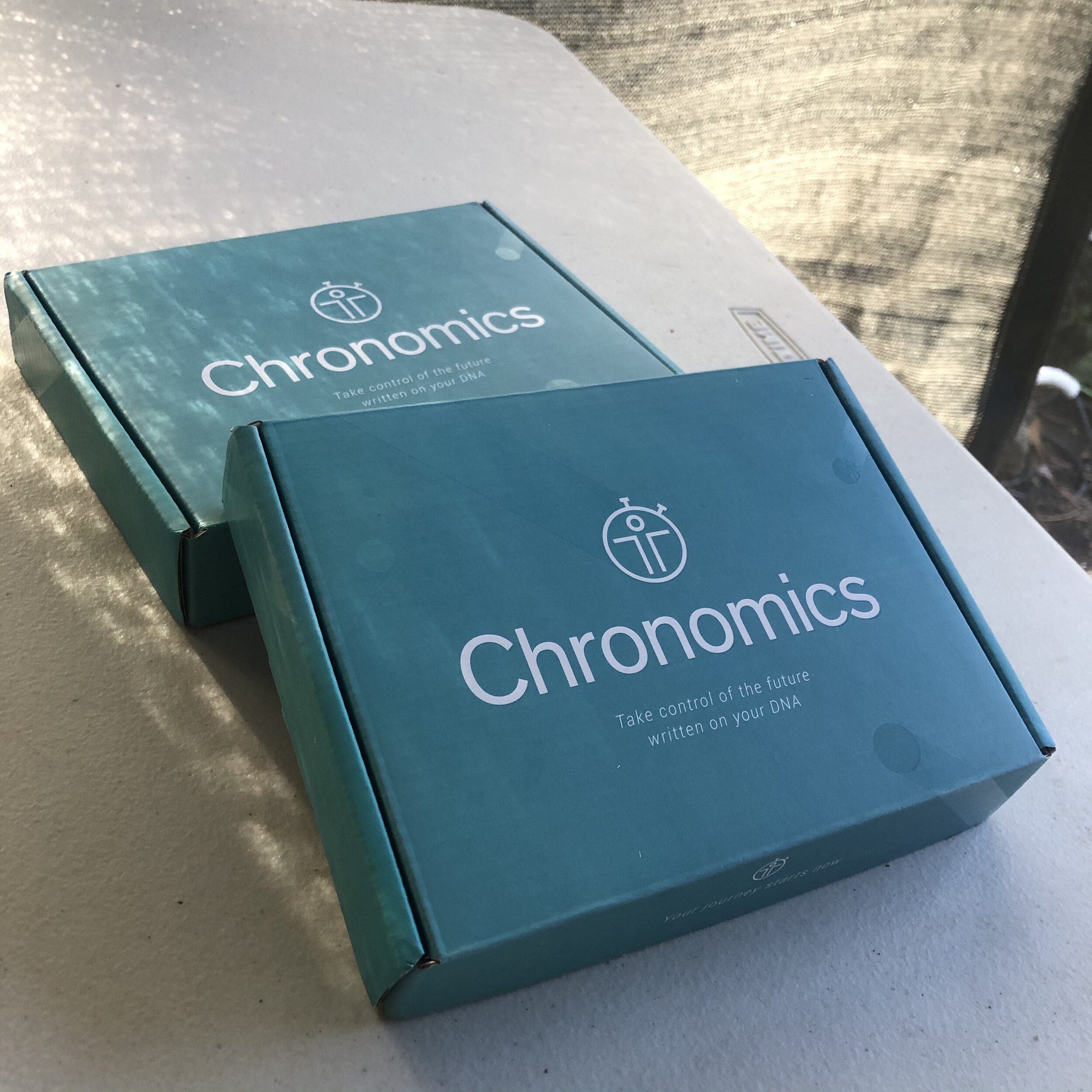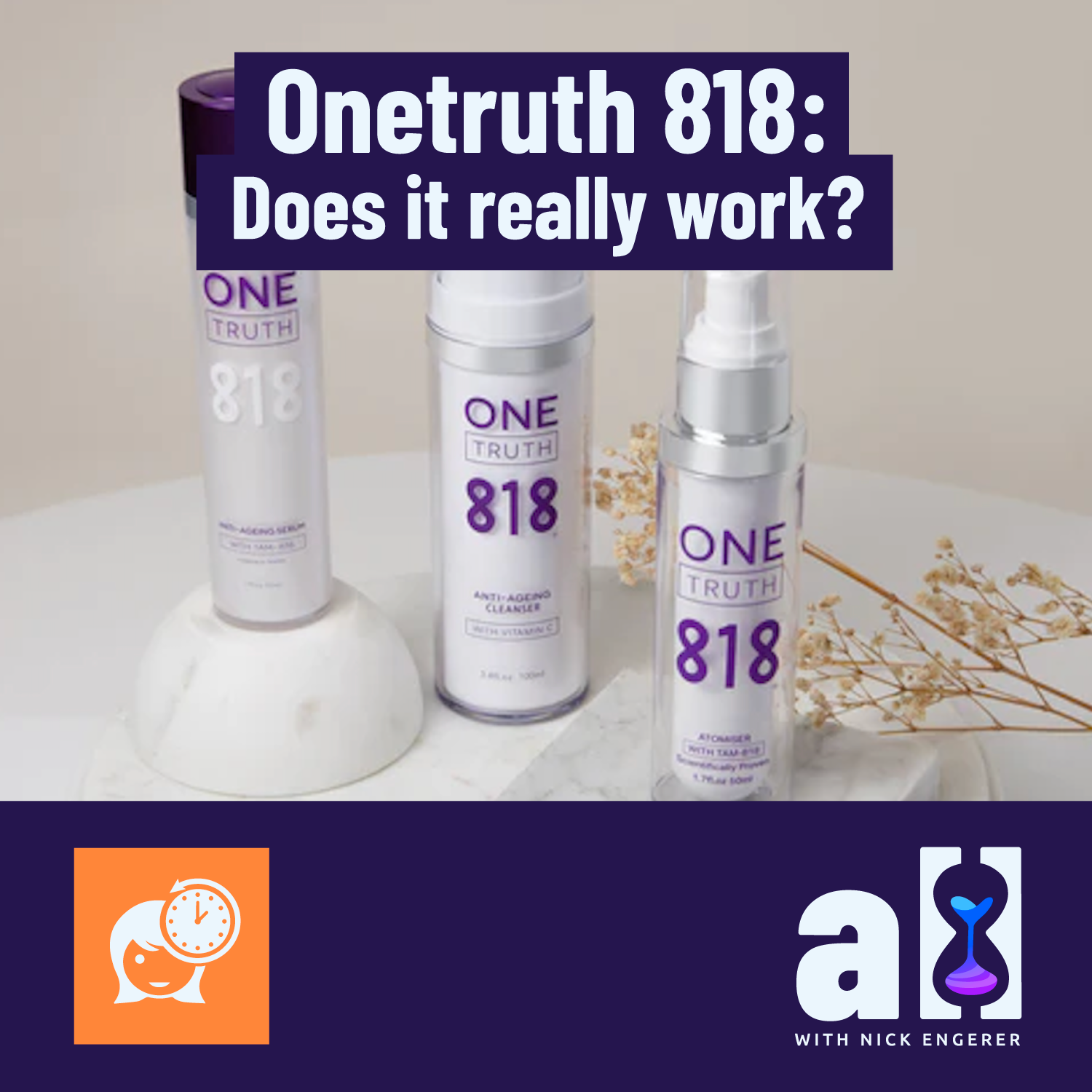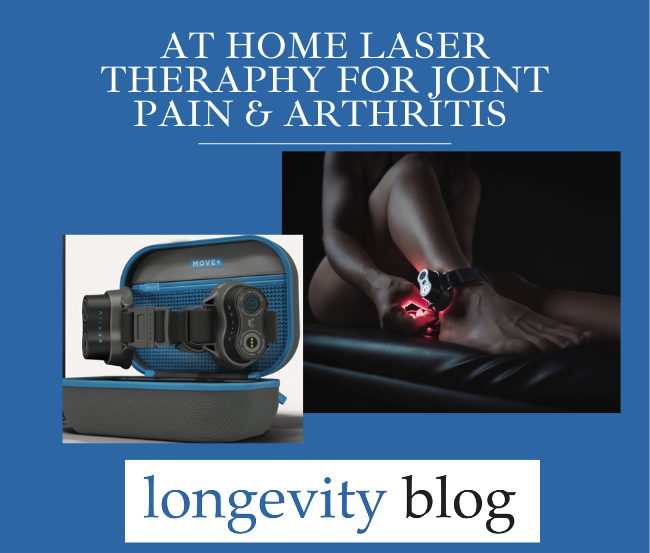How to use biological age testing kits and build a personalised longevity strategy
What is my biological age?
Nick and Dr. Robert Lufkin MD dig into the ‘secrets’ of longevity. You can find the full video here.
Your biological age can be estimated through a number of different methods. We’ll discuss those in some detail in this post.
What this biological age value is attempting to answer is - how old are you really? Meaning, how old is your body at the cellular level?
Answering this question has only recently become possible.
But one of the challenges is - there are many ways to ‘measure’ it, and not all of them will give you the same answer!
More to the point - can these tests enhance my longevity strategy?
How Do You Measure Biological Age?
Biological age can be ‘measured’ by a blood test or a saliva sample.
Using these samples, certain aspects of the sample are analysed, depending on the test type:
Telomere length (looking at your chromosomes)
Phenotypic age (comparing a compilation of blood tests to your peers)
Epigenetic age (looking how your DNA is expressed by the epigenome)
GlycanAge (reviewing the signalling molecules for inflammation in the body)
How to Calculate Biological Age
This question brings us nicely to our interview subject matter today.
Calculating biological age from the above samples is based on the following process, with widely varying degrees of simplification:
Researchers gathering many thousands to hundreds of thousands of the above samples
Building a model based on the chronological age of the donors + the markers measured
Choosing the risk target of the model (e.g. all cause mortality is most common)
Using the model to review your sample to tell you how hold you ‘look’ compared to your peers, biologically
There are many commercial offerings for doing this, several of which we have reviewed in detail on Longevity Blog (read on for more!).
What Does A Biological Age Value Tell You?
Biological age and longevity is a complicated topic, and it is not easy to sort through marketing hype and make a clear decision on how you want to engage with this relatively new technology.
Thankfully, our friend and colleague Dr Robert Lufkin is looking to make sense of these messages and find the ‘secrets’ often buried in the details.
In his recently launched Health Longevity Secrets show, he’s delivering a new episode/podcast each week interviewing topic areas experts.
On episode 18, he interviewed our Founder Nick, covering a wide range of topics with a distinct focus on biological age (the focus of this post) and also fasting, sleep, stress and diet (the focus of part two of this interview).
We’re bringing you the highlights (hosted on YouTube) of the discussion in excerpt form, where the tables have turned and Longevity Blog the interview subject for a change!
This is a transcription of an October 2020 interview between Dr. Lufkin and our Founder Nick. It is in excerpt format, to highlight key points of the discussion with basic edits made for purposes of clarity and correctness. Timestamps are approximate.
Biological age testing and the Personalised longevity strategy
Robert Lufkin (RL) 1:18
Maybe just to start off - when did you know you wanted to focus on longevity? I mean, you're not that old right now. So what happened?
Nick Engerer (NE) 3:08
I'm 35, but I've always been interested in health as a hobby.. That came through for me in powerful way in my late 20s when I had three important people in my life get cancer in the same year, all in their late 20s.
One of those was my wife - diagnosed with appendix cancer 30 minutes after my son was born through Caesarean section.
Those encounters with mortality really got me thinking at a young age around what can we do to engage with this ever present risk that we have in the background … there's a lot of technologies around to enable proactive screening for health conditions of all types. There's a big trend going on now with proactive healthcare technologies being able to pick up diseases earlier and earlier.
The costs and barriers of those coming down further and further.. those two trends really caught my interest.
building a personalised longevity strategy to simplify complexity
RL at 5:34
We’re all about ‘Sticking Around’, and self-experimenting with the many ways of doing so. Like this self-experiment with NAD booster NMN!
The Longevity Blog, which I love! … I love the motto for it: “Stick around”. That’s good… I look forward to reading and every time
Stepping back, how do you view longevity? What is your concept of longevity?
NE at 6:05
I'm a scientist ... I come to this thinking with a scientific view. I find it really interesting that we have an increasing availability of ways to test and gather data on our own body, and then form a view of how we interact with our health and specifically our longevity with that information.
When I think about longevity as a problem space… there's simply so much that one can do. There's so many pathways… it's simply overwhelming to try to engage with all of them. It's not possible.
How do we really simplify that? I like to think about it in terms of developing a personalised strategy. We’re working to pull together content on Longevity Blog…
I'll give you a specific example about how to think about this…. We can do a number of different exercises to actually personalise your risk profile.
The most simple example is doing a family health questionnaire; what did your grandfather and your grandmother on both sides of your family - what age related diseases did they experience? What about your parents, aunts and uncles?
This is totally free… you can take your doctor and start a discussion. See ahead of time - there's early heart disease in my family, what am I going to do about that? Or there's early onset Alzheimer's in my family. What am I going to do about that?
This simplifies the problem space down to some first actions that you can start to take in targeted ways to engage…
Personalised Longevity Strategy - where to start?
RL at 9:14
That's such a good point Nick. It's one thing to talk about longevity and and do the rapamycin and the resveratrol but we all need to first look at our risk factors because we can boost our longevity …
Giving blood at NextHealth Los Angeles for a Micronutrient Test. Finding critically low micronutrients in his blood was a key part of informing Nick’s personalised longevity supplement regime.
You mentioned screening and labs … could you talk about how someone would put together that screening profile for themselves?
NE at 10:10
That’s part of my obsession - trying to figure this out. There's simply so many tools at our disposal that we need to start with that simplifying lens that brings the scope down.
I've played around with many different technologies, some of which are a few thousands of dollars, some of which are less than 100 bucks. I’m continually working to pull together examples of how to use these different tests, or different blood screens or biological age estimates to really formulate a way of creating self experiments that show what works for you.
But even that's a bit advanced. So how do we really bring this back to the basics? Moving beyond that family health questionnaire, the place that I'm increasingly looking to is genetics.
How Do Genetics Influence Longevity?
There's been a big spike in recent developments and the capability of analysing the genome… what's happening is that computational resources and machine learning and data science are coming together with genetic information that's being studied... coming together in a way where we can not just look at single parts of the genome, but look at hundreds of thousands to millions of parts of the genome and pull together a picture with that, using machine learning and data science approaches.
Self-Decode, a comprehensive genetic testing kit for less than $100USD. Use it to customise your longevity strategy by targeting your stack-building and lifestyle changes toward future age-related disease risk.
We just interviewed Joe Cohen (Founder at SelfDecode) on Longevity Blog… 60+ scientists and data machine learning data science folks who are really moving the needle on the capability of genetic analysis.
What they've been able to do with the advances in the science is personalise analysis and suggestions … now we can look at an individual and say… here are the specific diseases we can connect your risk to, for cardiovascular disease, or for neurodegenerative disease, or for metabolic disease. And these are the age related diseases.
Again, use it as a simplifying lens in the overwhelming space of all the things we can do… to work toward avoiding age related disease. And to start doing that 10 to 20 years ahead of time… you can start being proactive in changing your lifestyle in a specific way
Epigenetic Testing for Longevity (including Biological age)
RL at 15:04
Are you aware of any other companies that are looking at the epigenome for doing machine learning of the same thing with, you know, methylation clocks?
NE at 15:49
Yes. This is where things are going now. Epigenetic understanding in science has really accelerated over the last five years, again, because of the ability to sequence and be able to do that types of real in depth analysis to pull the data out of the epigenome which is changing over time, which is responding to the environment.
...That space is a bit behind, you could say it's 10 years behind genome sequencing, and that we're still connecting what's happening in the genome to outcomes.
I've spoken with the CSO of Chronomics Dani Martin-Herranz, which is one of the leading companies in epigenetic analysis … we get a biological age number, but how do we know.. what we should do to improve that biological age?
Order your own epigenetic biological age test from DoNotAge. This kit includes customised insights into gut, vision and cardiac health. Use the code “longevityblog” to save 10%
The fact is that the data is not there yet, the science isn't there yet to say this is what the epigenome is showing us.
This is what you need to change to be more youthful or to solve a given problem…it's a even thornier problem than simple genetic analysis, but it will increasingly inform us on our health journey, particularly our longevity journey, as it's becoming central to understanding some of the ageing process itself.
what can biological age tell us about longevity?
RL at 18:36
Dr. Morgan Levine and some of the others from Yale and other places - they're finding that depending on what you train it on, the clock is going to be biassed towards cardiovascular risk or dementia risk or other risks like that.
NE at 20:15
I can add a few things there - Dr. Levine… I've watched several of her lectures, they've done some great collaboration with National University of Singapore talking about biological age clocks… what's happening biological age clocks is trying to express risks in the mortality space over time [to] represent your risk for a disease outcome.
That [biological age] number at the end is nice for a consumer because it's an easy story. But what's more interesting to me and where I think we're going to future is increasing dissection of those results to give useful information.
[Checkout 3x FREE ways to estimate your biological age!]
You mentioned Gordan Lauc from GlycanAge - we’ve interviewed him on Longevity Blog .. I actually just successfully improved my GlycanAge, it was our I'm 35, it was 30, I got it to be 24. I did this by eating a diversity of plants in my diet...
Nick improved his biological age by 6 years through a change in diet. How? By eating 30+ different plants per week. Checkout the details here!
Being able to use these tools to improve a biological age result does seem to suggest an improved health outcome.
But what's really interesting about the GlycanAge product is they actually break it down into three indices… you can actually look at these indices and see where you improved by trying an intervention.
… When you start to break down that result beyond just an age, you start to see, okay, I've increased my performance by reducing the number of inflammatory glycans in my body, which are causing chronic inflammation, and increasing the number of good glycans in my body, what you're saying to the rest of the body is systemically toned down inflammation… that's better for your longevity.
Reversing Aging versus Improving Biological Age
RL at 24:07
The question is if we reverse DNA methylation, have we reversed our risk of ageing?
NE at 24:47
This is important to get this out there for the consumer. There's a lot of different biological age tests. They will give you a result that comes out of a model that is trained that has some value.
If you get a number that says you're 40 years old, and you're 50, you're biologically younger on that metric, which is probably better than your peer who is 50, but gets a biological age of 60. There's some merit to the absolute value here.
But what's more interesting to me, and I've talked to Professor Lauc at GlycanAge about this, is that changing our biological age, the relative value… [getting a] lower value is indicative of making a positive health change wherever that model is trained.
Want to go deep on biological age models? Checkout our technical interview with Deep Longevity CLO Alex Zhavoronkov.
For glycans, the overall inflammation in your body. We're not talking about a single marker like C reactive protein, homocysteine… we're talking about 24 different glycans that track and tag the individual molecules in the body to tell the immune system what to do, before any of those blood markers go up.
The consumer needs to know what they’re trying to change based on which biological age test they’re using and what it represents. Then the should try to implement a positive change to that number, and testing again, some months later.
They also need to know how long that marker takes to change. With GlycanAge, you can change in just three months. With an epigenetic age test, it might take 6 to 12 months. So understanding the science and tech behind the biological age tool that you're going to use is part of what we demonstrate on Longevity Blog.
… One other thing I'll add - don't get caught up in calling it “reversing” ageing … No, you have improved your mortality risk because that age has gone lower. That's a great thing. But we're not at a point where we can “reverse” true biological age, in terms of turning that number down with interventions.
… The point is we have a couple new metrics that we can use to run self experiments and improve the longevity outcomes for our body, which is fantastic.
Biological Age in Athletes: Exercise and Longevity
RL at 28:31
One promising longevity molecule Urolithin A is making a big impact in the athelete work. Supplement “Mitopure” is demonstrating improvement in endurance performance through enhancing mitophagy (the death of defective mitochondria). Read more in our interview with Amazentis CMO Federico Luna.
That's a great point... I wanted to get what's your take on biological clocks measured in extreme athletes, they've noticed shortening of their age (increased biological age). Have you encountered that at all?
NE at 29:12
Yes. In fact, GlycanAge is a great example of this.... I am convinced far and away the best, the most powerful longevity drug you can take right now is exercise.
Now, exercise is an interesting drug, in that its doses are widely varying, and they're highly personalised. I recently did a deep dive on exercise and its profound benefits for longevity, and I decided that I wanted to really up my fitness game, and I actually became a triathlete.
So now I'm training for triathlons. And it's been a huge change for my body. I've seen so many positive things that have resulted from that. But I know that ... there's a so called J shaped curve, which is well known in the sports medicine industry. Once you exercise too much, you start increasing your risk, particularly for health conditions like atrial fibrillation
...There's risks that athletes face because when it comes down to a real true athlete, these individuals are pushing their body so hard day after day after day… exercise produces a profound amount of damage and inflammation in the body that the body that needs to recover to become stronger.
Over time, continuing to push your body really, really hard, like a professional athlete does, isn't actually probably good for longevity… I don't know where the bottom of that curve is, but it somewhere around 450 intensity minutes of exercise a week, according to big cohort studies.
So there's, you can do a lot of exercise. And you should, because it's a really good drug and it keeps improving your health outcomes. But professional athletes are on the far end of that. And this is why we see, you know, decreased benefit to high levels of really intense exercise, it's just simply too hard on the body for it to recover all the way.
RL at 33:19
Well, now that we're talking about some lifestyle things like exercising.. What about diet? Fasting, we hear so much stuff about that and longevity. What's your take on fasting influencing longevity?
Longevity Strategies for Fasting, Diet, Sleep and Stress - Read More in Part 2!
Follow me on Twitter for the latest #Longevity news!
-
RT @rebeccavziegler: The cryonics payoff matrix. Choose wisely my friends. https://t.co/l1rzsmOC2w
-
My rate of aging: 0.79 It’s the new street cred What you got? https://t.co/aHzWHAfCnD https://t.co/L3rZC4QFN2
-
It’s official - I’m co-producing and hosting a new #longevity docuseries, and will begin shooting in a few months… https://t.co/wLGqRrBfbp
-
“The #longevity segment opened my eyes to the groundbreaking advances in biotechnology, health, and wellness. The i… https://t.co/F8YB7PAeMW
-
I’m completely mindblown by what AI has done over the past 3-6 months, and it continues to accelerate… https://t.co/hh0JslucRg
-
Longevity legends take on many shapes and sizes https://t.co/X9vGa7gvOe
-
RT @BradStanfieldMD: Avoid These Popular Supplements (shout out to Professor Matt Kaeberlein @mkaeberlein & Professor Brian Kennedy… https://t.co/cy9CXldgUS
-
Who are influential persons in #longevity who are of Asian, African American or other “minority” group in the US?
I also posts related #Longevity content to Instagram as well, follow me @nickengerer
FDA & TGA DISCLAIMER
This information is intended for educational purposes only and is not meant to substitute for medical care or to prescribe treatment for any specific health condition. These blog posts are not intended to diagnose, treat, cure or prevent any disease, and only may become actionable through consultation with a medical professional.



